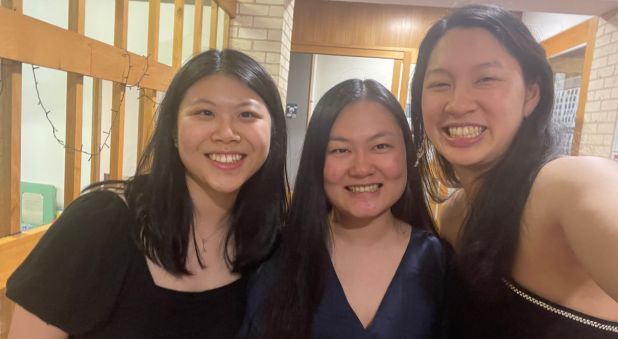When Becky Lui told me she was working on an evangelism coaching network, I had questions. Firstly, what was an evangelism coach? And secondly, why do we need a network?
My time is spent juggling two small children, work and church commitments, plus an array of friendships. If I was going to participate, I needed to be convinced it was worth my time.
“Together we are the body of Christ, so we need to work together when we want to point people to Christ,” explains Mrs Lui, who is dean of residents at Macquarie University’s Robert Menzies College and an evangelism coach with Evangelism and New Churches (ENC). “Ephesians 4:11-12 speaks of evangelists as gifts to the church because they help equip the whole church in the work of loving people and speaking gospel truths into their lives.
“Working together makes things better. We need the whole body to evangelise – not just on Sundays or special events, but each member of the body to be active seven days a week in the different fields he has placed us in.”
According to Mrs Lui, an evangelist is simply someone who shares Jesus with others, whether that be in the workplace, around the dinner table or at the playground. “The Bible doesn’t really spell out qualifications and descriptions, so I think that if you are sharing the gospel, you’re an evangelist, and you’re a gift to the body,” she says. “So let’s recognise that this is what we’re doing and then purposely get better at it.”
The goal is to connect church members who are currently evangelising in their day-to-day lives – whether that be in the workplace, with their neighbours, at Saturday sports or at the playground – and create a network of like-minded evangelism coaches for ongoing fellowship, support and growth in how to serve and love their local Christian communities to grow in this area.
My evangelism coaching session began with Mrs Lui asking thoughtful questions to help me reflect on recent conversations I had had with people about Jesus. Together we discussed what went well, where I could have been more considerate or pastoral, and ways I could more clearly share the hope that I have.
Her goal was not to bombard me with techniques, tricks or fancy ways to Bible-bash everyone I meet. Instead, it was to light a fire in me that I could then carry back to my Christian friends. The more we share about our own evangelism experiences, the more we encourage others to also keep doing the difficult task of sharing the gospel. The more we can share our own conversations, the more we can inspire others to do so. The more we show other believers that we are a person who wants to hear about their evangelism efforts, the more people will share their conversations with us, and we can continue to spur one another on.
Three things I learned
Here are three ways I’ve noticed evangelism coaching has shaped me.
1 It’s not my job to convince people to become Christians.
Being reminded by Mrs Lui that we are looking for lost sheep first and foremost helps me to focus on my task, and not slip into doing God’s job. Convicting people and changing hearts is the Holy Spirit’s work. My work is to preach Christ and help people fix their eyes on him.
This is both a big comfort to me and a huge challenge. I’m not responsible for winning arguments or persisting with people who aren’t interested. When I’m sharing about my faith, I’m gently looking for those who have ears to hear and giving those who are curious a space to ask further.
2 Reflection is important
I’ve begun to reflect more intentionally on my gospel conversations, both alone and with others.
“Start with encouragement, looking at what you did well,” Mrs Lui says. “Break it down in terms of what you did, how you gauged responses and what the follow-up was. Analyse the conversation, asking what the jumping spot was to Jesus, and if it was the right jumping spot.“
When doing this with others, find out how they brought Jesus up and why they chose to share some things and not others. “The aim is to sharpen everyone,” Mrs Lui says. “What we’re trying to do is build teams of evangelisers in every church, so that we can share everyone’s ideas.”
3 Use Netflix to prepare
In 1 Peter 3:15 it says, “Always be prepared to give an answer to everyone who asks you to give the reason for the hope that you have”. A great way to practise this is to ask yourself how you would share the hope of Jesus with characters in the shows you are watching, whether it’s Bluey or reruns of The Office.
“What would you say to Chilli Heeler?” Mrs Lui asks, referencing Bluey’s mum from the Bluey episode, “Baby Race”. “How would you point her to Jesus in this moment when she’s feeling guilty?” As a result of this prompting, I cannot watch Netflix the same again!
Mrs Lui longs to see enthusiasm for evangelism spread from person to person in our churches, and prays that a network of evangelists can supercharge this spread.
“I pray for everyone to grow in their zeal for the glory of God,” she says. “I pray also for zeal for the task and for the joy that is set before us, as we undergo trials together and share burdens together and spur one another on. That’s God’s model; that we are together and we are a body. That brings him glory.”






















